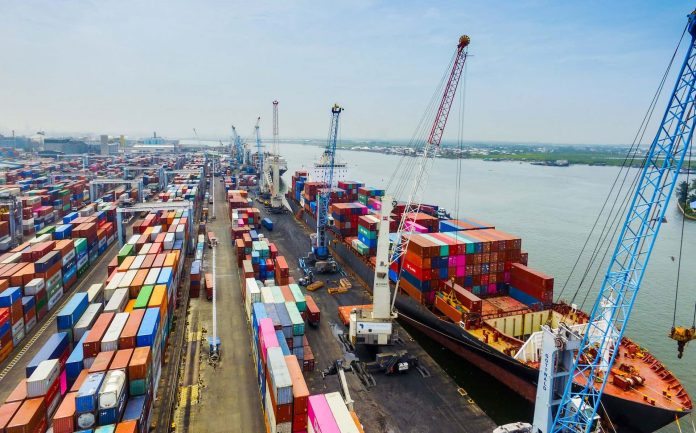The Nigeria Ports Authority (NPA) says it is initiating a substantial rehabilitation of almost all the ports in Nigeria at the cost of $1.1 billion.
Managing Director of NPA, Mohammed Bello-Koko, who spoke during a panel session at the 43rd annual council meeting of the Port Management Association of West and Central Africa (PMAWCA) in Lagos, said the rehabilitation is planned to start in the first quarter (Q1) of 2024.
He said almost all the ports in Nigeria need rehabilitation and “NPA is initiating a substantial overhaul worth $1.1 billion”, starting with the Tincan Island and Apapa Ports in Lagos.
“The objective of the authority is to enhance the physical infrastructure of these ports to accommodate vessels of all sizes and increase the draft at the quayside,” the NPA boss said.
“Increasing the draft is intended to achieve draft depths of up to 14 meters and this initiative will render Nigerian ports more competitive on a global scale.”
Bello-Koko also said the NPA was also strengthening collaborations with the private sector to establish new seaports.
He said the Lekki deep seaport had already commenced operations, and the Badagry deep seaport recently signed an agreement with a Middle Eastern party, with construction scheduled to commence early next year.
The NPA boss said these endeavours exemplify the authority’s determination to create a multimodal transportation system connecting all ports seamlessly.
Speaking on the challenges of cargo evacuation by road, Bello-Koko said the agency is actively working on alternative initiatives like barges and also expanding rail infrastructure.
“The survey for deploying cargo rail and tracks to Onne port has been completed, setting the stage for the project to kick off next year,” he said.
“The authority has automated its collection system and is collaborating with the International Maritime Organization (IMO) to introduce a state-of-the-art port community system, poised to optimise cargo clearance processes.
“The authority is working on clarifying the responsibilities of government agencies within the ports with the newly developed port process manual aimed to reduce overlaps and eliminate duplication of duties.”
Bello-Koko said security challenges on waterways would require the deployment of the deep blue sea project, equipped with air and sea assets.
This, he said, would enhance security in the Gulf of Guinea and contribute to significantly reducing piracy incidents within Nigerian waters.
The port authority chief also said the agency is collaborating closely with the Nigerian Customs Service (NCS) in reducing bottlenecks and cutting the cost of doing business within the ports.
He said the development of a 25-year port master plan would guide the location, sizes, and activities of ports, terminals, and jetties in Nigeria.
“The master plan will serve as a national working document, uniting all stakeholders towards marine and logistics development,” Bello-Koko said.
On his part, speaking, president of PMAWCA, Martin Boguikouma, urged African countries to address challenges facing the region to be able to receive the new volume of traffic that would emerge due to the African Continental Free Trade Agreement (AfCFTA).
Boguikouma also called for efficient transport infrastructure, and maritime safety through enhanced interstate cooperation.


